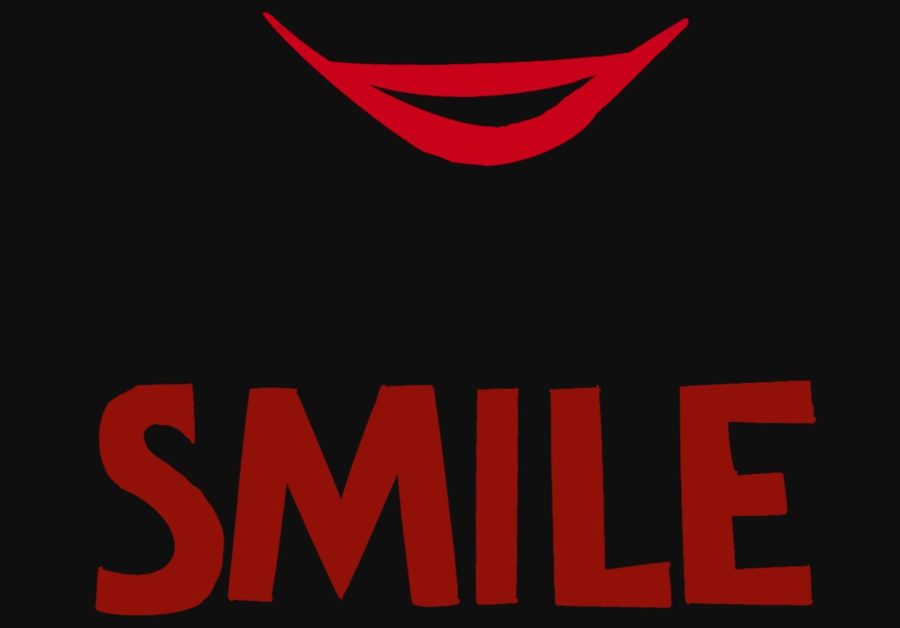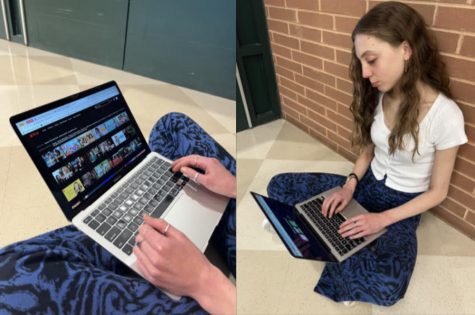‘Smile’ inappropriately addresses mental health, disappoints viewers
“Smile” adds another horror movie to your to-watch list, but does so at the cost of mental health stereotypes.
With Fright Night just around the corner, horror movies are flooding the theaters once more. You may have heard of “Halloween Ends,” “Don’t Worry Darling,” “Barbarian” and “The Invitation,” but “Smile” is probably the only new film to appear on your For You Page. Unfortunately, it should be avoided at all costs as it disappointingly stigmatizes mental illness. Smile’s trailers may have seemed enticing on social media, but results in a wholly predictable and offensive movie.
Directed by Parker Finn, Smile most notably stars Sosie Bacon as a psychiatrist experiencing emotional trauma. The movie begins by making it clear that Bacon has childhood trauma of her own that has led her to this job, ultimately haunting her later in the film. The plot line repeatedly follows the idea of PTSD escalating to the point of someone appearing possessed. Ultimately, this leads to them being haunted by their past until they form their last smile.
The idea of “Smile,” appealing to the juxtaposition between smiling and horror, was a solid one, but the incorporation of genuine mental illnesses is especially what spoiled the movie for me. — Elle Vail '23
Repeatedly, the haunting of these personas whose life ends with a smile is caused due to trauma. Although I respect the realistic aspects of this movie that few horror films have, I will never stand for mental illnesses being a cause for entertainment.
Even Bacon’s character as a psychiatrist adds stigma surrounding her field. Only severe cases of mental illnesses are displayed in the movie, further adding to the stereotype of psychosis and psych wards.
Secondly, Bacon’s intense PTSD dramatizes her field, additionally dehumanizing her patients while relating them to horror. Typical horror themes depict monsters and inhuman creatures hunting others. Through the psych ward patients creating the “smile” only in severe cases of mental illness, their suffering dehumanizes them simply for entertainment within the movie. This kind of warping genuine illness for entertainment makes destigmatation more and more difficult surrounding mental health and mental illness issues within the real world.
Lastly, TikTok’s ads in particular catered to “Smile”’s jump scares. “Smile” itself followed through with this aspect, but, as a result, the actual plot was not very developed. “Smile” fell through with its predictability and repetition.
All in all, “Smile” may cater to jump scares and more traditional horror, but its inappropriate address towards mental illness and predictable plot makes it a hard “no” to recommend to others. I would rate this movie a 2.5/5.

Staff Writer Elle Vail ’23 was mainly prompted to join Inklings due to its creative graphics in the paper.
“I really like drawing in my free time,”...






























































